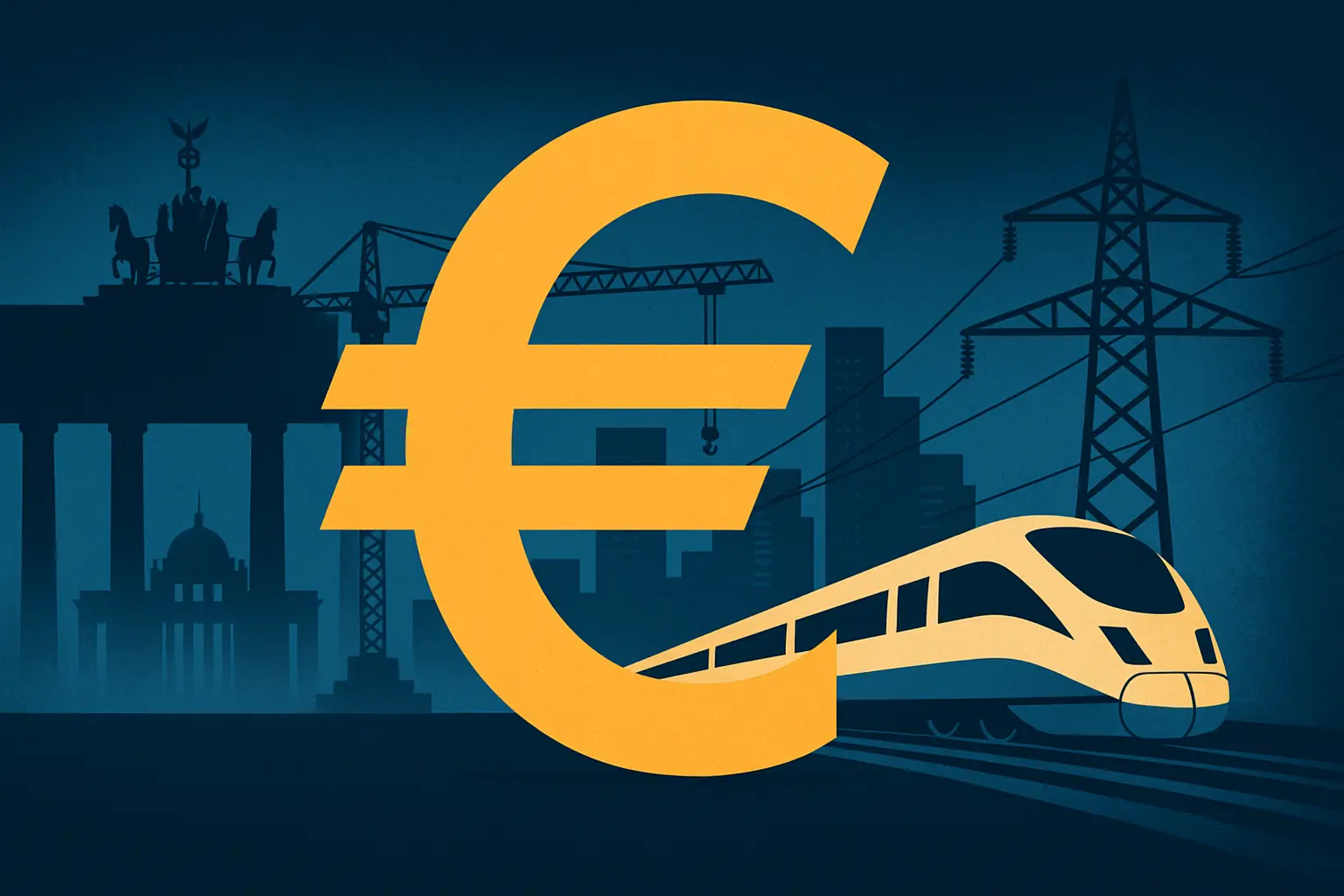Germany, long known for its strict fiscal discipline, is undergoing a profound policy shift. With the Bundestag voting to loosen the “debt brake” and commit to a €500 billion stimulus, the country is charting a bold new course aimed at economic revitalization.
From stagnation and political collapse to the push for digitalization and defense expansion, here are the 7 essential facts you need to know about Germany Economic Reform 2025.
Table of Contents
1. The End of Germany’s Fiscal Austerity
For years, Germany’s fiscal “debt brake” was a symbol of prudence, mandating nearly balanced budgets and limiting public borrowing. But this conservative approach became a straitjacket in the face of evolving economic threats.
Now, under Chancellor Friedrich Merz and a newly empowered CDU, Germany has abandoned this orthodoxy, unleashing a half-trillion euro stimulus. It’s a clear signal: growth and resilience now take priority over rigid austerity.
2. What the €500 Billion Stimulus Will Fund
This isn’t reckless spending. The Germany Economic Reform 2025 plan outlines strategic investments in:
- 🚆 Rail and transportation infrastructure
- ⚡ Energy transition technologies (e.g., hydrogen, renewables)
- 🌐 Digital infrastructure and broadband
- 🛡️ Defense modernization aligned with NATO commitments
This fiscal bazooka is Germany’s bet on regaining competitiveness, addressing long-overdue infrastructure needs, and future-proofing its economy.
📌 According to Reuters, Germany’s energy and digital systems rank among the least modern in the G7—a problem this plan directly targets.
3. The Collapse of the Old Political Guard
The coalition led by Olaf Scholz crumbled under internal fiscal disagreements, revealing deep divisions over how to handle stagnation.
With the CDU’s return and the far-right AfD gaining ground, Germany’s political terrain has shifted. Voters demanded bold action, and Merz delivered, breaking away from Merkel-era caution and positioning the CDU as agents of transformation.
🚀 Want to Hire Tech, Green, or Digital Talent?
Germany’s economic reform is sparking a new wave of investment and innovation.
Post your job on WhatJobs to reach the professionals driving Germany’s transformation.
4. Structural Problems Germany Must Solve
The stimulus can’t solve everything. Germany still faces:
- 📉 Shrinking GDP and declining industrial output
- 🧱 Heavy bureaucracy and overregulation
- 🔌 Lagging digitalization in both public and private sectors
- ⚠️ High energy costs choking competitiveness
Without structural reform, even €500 billion won’t be enough. That’s why reform advocates are pushing for red tape reduction, digital innovation, and more agile public policy.
5. Innovation, Startups, and the New Business Focus
Germany’s new economic strategy is shifting toward entrepreneurship and digital ecosystems:
- 🚀 Startup incentives and tax breaks
- 🏛️ A new Ministry of Digitalization
- 💡 Private sector partnerships for R&D and infrastructure
This marks a cultural pivot from cautious industrial conservatism to risk-friendly innovation—a crucial move if Germany wants to compete with the U.S. and China in AI, biotech, and green tech.
6. Demographics: The Workforce Time Bomb
One of the greatest threats to Germany’s economy is its aging population. By 2035, over 30% of Germans will be retired, leaving a shrinking pool of working-age citizens.
To address this, Germany must:
- Encourage later retirement and flexible work
- Boost female participation in the labor force
- Streamline immigration for skilled workers
- Automate where feasible without harming jobs
Failure to do so will erode productivity and strain public finances, making reforms unsustainable.
7. What Success Looks Like in the Next Decade
If successful, Germany will:
- Reposition itself as Europe’s innovation hub
- Become energy-independent through green tech
- Attract global capital and startups
- Maintain leadership in defense and EU strategy
But risks remain. Mismanagement, political opposition, or delays could blunt impact. The real test of Germany Economic Reform 2025 isn’t passing a bill—it’s delivering outcomes, fast.




